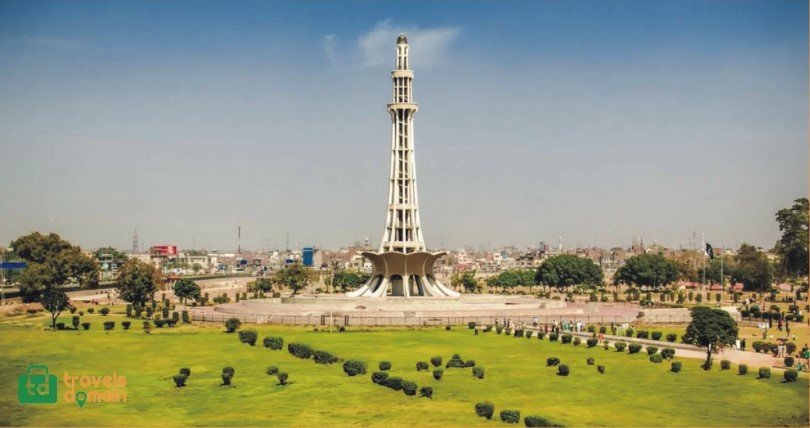Minar-e-Pakistan – An Iconic Monument in Lahore.
Minar-e-Pakistan, otherwise called the ‘Pinnacle of Pakistan,’ was worked with a reason — to remember the
Lahore Resolution. Qarardad-e-Pakistan was presented and passed in an All India Muslim League (AIML)
meeting on March 23, 1940. It was held at Minto Park – presently renamed Iqbal Park.
The country praises this pivotal event as Pakistan Day and the public authority of Pakistan declares it as a
public occasion consistently.
For any devoted resident of Pakistan, the historical backdrop of Minar-e-Pakistan holds incredible significance.
Meaning OF MINAR-E-PAKISTAN
There is a notable second behind this tall pinnacle in Lahore. The Pakistan Resolution solidified the way for a different condition for the Muslims of India.
Shandur Polo Festival Chitral: Details and Dates
All in all, what occasions were made ready for Qarardad-e-Pakistan? Up until the mid-1930s, the Muslim chiefs
were putting forth attempts to shield the political interests of Muslims inside India and needed Muslim-greater
part areas to have the most extreme independence.
HISTORY OF MINAR-E-PAKISTAN

In the 1935 Government of India Act, having a common portrayal through discrete electorates was chosen.
At the point when races were held under this Act, the Indian National Congress shaped an administration in six
out of eight regions.
During the standard of the Indian National Congress from 1937 to 1939, it was evident that Muslims were
sidelined and Congress authority neglected to address Muslims.
LAHORE RESOLUTION
By 1939, the prospect of a different country was acquiring notoriety among Muslim pioneers. The All India
Muslim League held a meeting from 22 to 24 March 1940 at Minto Park.
The Pakistan Resolution was moved by A.K. Fazl-ul-Haq, who was the CM (Chief Minister) of Bengal at that time.
It was approved by Sardar Aurangzeb Khan from N.W.F.P., Zafar Ali Khan from Punjab, Chaudhry Khaliq-uz-Zamaan
from the United Provinces, Qazi Muhammad Essa from Balochistan, and Sir Abdullah Haroon from Sindh.
Walk 23, 1940, is set apart as a day when Muslims requested a different country. It emphasized Allama Iqbal’s official
location held at Allahabad in 1930, where he shared his vision of a different country for the Muslims of India.
The Lahore Resolution completely requested Muslim greater part areas of north-eastern and north-western zones
of India be gathered as a free state.
The Lahore Resolution gave new desire to the Muslim people group in India. The battle to have a sovereign state
picked up speed and following seven years, Pakistan appeared on August 14, 1947.
To respect where the Pakistan Resolution was passed, a pinnacle was built in Greater Iqbal Park, establishing its
groundwork stone on March 23, 1960. It required eight years to develop the pinnacle and in 1968 this authentic
structure in Lahore was assembled.
Design OF MINAR-E-PAKISTAN

Minar-e-Pakistan isn’t just a significant milestone in Pakistan, but it likewise represents Islamic and Mughal
design with a hint of a contemporary plan. The modeler of Minar-e-Pakistan was Naseer-ud-commotion Murat Khan.
The foundation of the minaret is 8 meters high from the beginning the transcending structure is fabricated 62 meters
over a star-formed base. This makes it a sum of 70 meters over the ground. It has a wonderful plan as though the petals
of bloom are unfurling. Minar-e-Pakistan has a measurement of around 9.75 meters.
Development HAVING SYMBOLIC REPRESENTATION
The base comprises four stages and represents the opportunity battle. The primary stage is made with whole and
unpolished stones from Taxila, addressing the hard, unwavering endeavors of Muslims of India in the opportunity battle.
The subsequent stage is assembled utilizing hammer-dressed stones, mirroring the coarse and harsh way towards
opportunity while the third stage is made of etched stones, addressing how the Pakistan Movement picked up speed.
In the fourth stage, cleaned white marble is utilized – portraying the progress in the presence of Pakistan.
COST OF CONSTRUCTION
The complete development cost caused by the undertaking was roughly PKR 7,058,000. Because of an absence
of assets, reserves were raised in line with Governor West Pakistan, Akhtar Hussain.
Extra duties were demanded for watching motion pictures in film houses and for individuals who
purchased passes to horse-racing occasions.
Today, Minar-e-Pakistan stands tall in the focal point of Iqbal Park, engaging its guests with all-encompassing
perspectives on the city. Individuals who can’t climb the steps or arrive at the highest point of the structure can do
so through a lift.
There is a gigantic park, a counterfeit lake, and murmuring wellsprings around it that make it all seriously charming.
Engravings INSIDE MINAR-E-PAKISTAN
There are engravings inside the structure. The Lahore Resolution in text structure is recorded on the stone mass
of Minar-e-Pakistan. It is written in various dialects: English, Urdu, Bengali, and, surprisingly, Arabic.
On various boards, utilizing calligraphy, sections from the Holy Quran and the 99 names of Allah are engraved
though the National Anthem of Pakistan is additionally cut in Bengali and Urdu.
You will likewise track down portions from the discourses of Mohammad Ali Jinnah in Bengali, English, and Urdu.
A portion of the popular couplets of Allama Iqbal is likewise engraved on the walls.
Burial chamber OF HAFIZ JALANDHAR
The resting spot of Hafiz Jalandhari, who composed Pakistan’s National Anthem is situated on the patio of
Minar-e-Pakistan. The burial chamber of Allama Iqbal is likewise situated in Iqbal Park.
Probably the main verifiable structures in Lahore like Badshahi Masjid, Lahore Fort, and Sheesh Mahal are
neighboring Iqbal Park. Entrance is free and individuals from everywhere over Pakistan visit Minar-e-Pakistan
to honor the political dissidents.



1 Comment